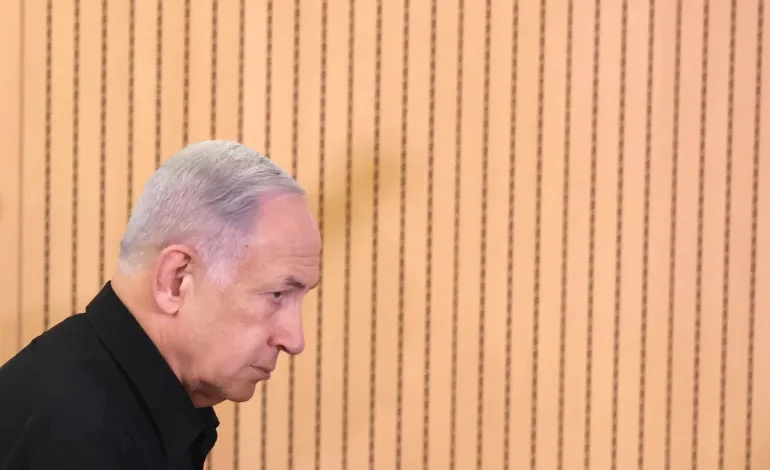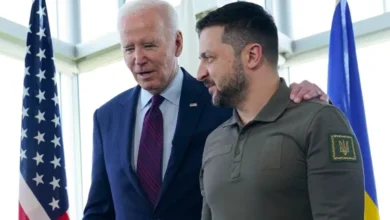Inside Benjamin Netanyahu’s mind: How is Israel’s PM plotting the Gaza war?

Gal Hirsch has no known experience in hostage negotiations, and in 2006, he left the Israeli forces, disgraced over his role in military failures during the war with Hezbollah in Lebanon.
Yet when Prime Minister Benjamin Netanyahu picked the former military commander to lead efforts for the release of captives taken by Hamas to Gaza after its October 7 attack, that decision made sense to political psychologist Saul Kimhi.
“He’s choosing people [to join his wartime administration] based on their opinions of him and not on how fit they are for the job,” Kimhi said. Hirsch is a member of Netanyahu’s Likud party, and — like Israel’s prime minister himself — has faced charges of corruption.
Kimhi, who teaches at Tel Aviv University, has studied Netanyahu’s mind for almost a quarter of a century. In 1999, the same year that Netanyahu’s first term as premier would end, Kimhi’s behavioural analysis of the leader found a concerning pattern of behaviour. Some of his conclusions: Netanyahu was narcissistic, entitled and paranoid, and he reacted poorly under stress.
Kimhi revisited Netanyahu as a subject in 2017 but found not much had changed. As people age, Kimhi said, their behaviours tend to become more extreme. For Netanyahu, his paranoia and narcissism have grown. He trusts no one, except maybe his immediate family, and prioritises his “personal future” over all else, Kimhi’s research found.
Now, as he leads his nation into the war on Gaza, the personality traits that shape Netanyahu’s biggest decisions could directly affect the lives of millions of Israelis and Palestinians and the direction of the conflict. And the signs so far, according to Kimhi and other analysts, are worrying.
Indecisive and distrustful
Netanyahu’s behavioural analysis, according to Kimhi, suggests that he is indecisive and struggles with difficult decisions. “He is not a resilient person at all,” Kimhi told Al Jazeera.
Before Netanyahu appointed Hirsch on October 8, the position of hostage negotiator had been left vacant for more than a year. Hamas took more than 200 Israelis captive during its raid on southern Israel, and only a handful have been released so far. This, Kimhi said, was an example of Netanyahu taking “tough decisions at the very last minute”.
To be sure, Netanyahu also has qualities that appear to have helped him emerge as one of the world’s great political survivors. A 2021 personality study by the Jordanian professor of political science Walid ‘Abd al-Hay, found Netanyahu to be highly charismatic, “with a strong memory and high analytical ability”.
In a career at the top of Israeli politics spanning almost three decades, those attributes have frequently worked for him.
Netanyahu is Israel’s longest-serving prime minister. He first came to power in 1996 and served a three-year term before he was replaced by Ehud Barak. He would return to power in 2009 and then serve for 13 of the last 14 years.
On a handful of occasions, Netanyahu’s time appeared to be running out. In 2015, with his back to the wall, he used a scaremongering tactic, saying “Arab voters are heading to the polling stations in droves.” He was re-elected.
After losing the premiership for a year, he came back to power in 2022, this time, by assembling the most far-right government in Israel’s history.
National Security Minister Itamar Ben-Gvir has been convicted of incitement to racism, destroying property, and joining a “terror” organisation when he was 16 years old. Finance Minister Bezalel Smotrich leads the hardline Religious Zionist Party that not only rejects Palestinian statehood but denies the existence of the Palestinian people and has condemned LGBTQ activists. Interior and Health Minister Aryeh Deri is an ultraorthodox rabbi who was sentenced to three years in jail for taking bribes.
By composing such a cabinet, critics have accused Netanyahu of choosing his own political survival over Israel’s interests. An op-ed in the Israeli newspaper Haaretz has described some of Netanyahu’s ministers as “neo-Nazi” and “neo-fascist”.
However, none of that will matter much to Netanyahu. The important thing for him, according to Kimhi and other analysts who have studied the Israeli prime minister, is that he is in power, no matter the cost.
The extremist views in his cabinet may not bother him because “everything goes through him without the ministers knowing”, Thomas Vesconi, an independent researcher and author of two books on Palestine and Israel, told Al Jazeera.
Killing the ‘two-state solution’
Netanyahu’s paranoia and entitlement have arguably shaped his view on a Palestinian state as well. Despite publicly saying he is open to a two-state solution, he has undermined the process at every turn — including by insisting that a Palestinian state should have no military or security oversight over its territory.










